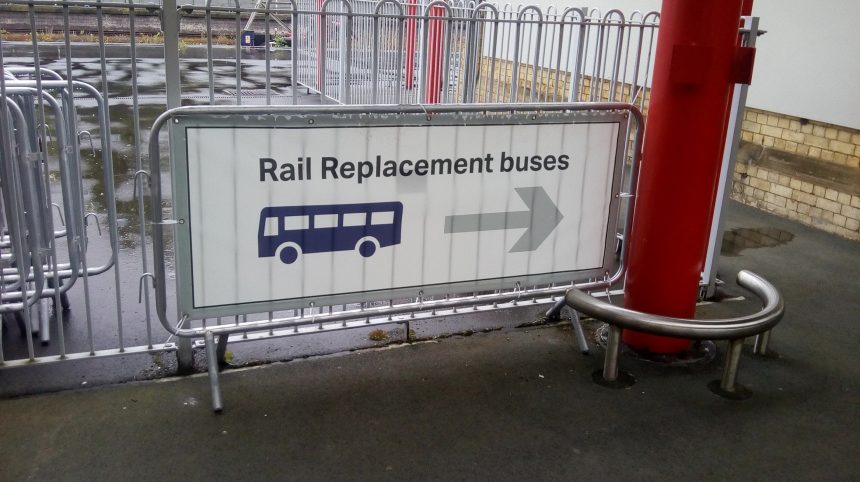That requirements for onboard announcements as laid down in the Accessible Information Regulations (AIR) will likely capture rail replacement work meeting the local service definition is another difficulty in that part of the coach and bus industry, and for bodies responsible for procuring those services.
A position that such duties are in scope of AIR has been presented by the Confederation of Passenger Transport (CPT). The trade body is confident in its view. routeone will report on the matter in full over the coming week when legal opinion has been received.
Definition in AIR of what is a long-distance service, and which thus sits outside scope of the Regulations, makes for a complicated read, while an ‘except in an emergency’ clause could influence rail replacement.
However, the already established separate fares situation leaves it clear that at least some rail replacement duties constitute local services, and thus fall within scope of accessible information requirements.
Those will open later this year with a partial compliance position that includes audio and visual announcements with an accompanying complex set of minimum standards. Cut-off dates for vehicles of various ages are 1 October in each of 2024, 2025, and 2026, with the latter capturing those dating back to 1973.
If AIR applies to in-scope rail replacement as expected, multiple problems will quickly follow. Availability of the necessary onboard equipment is already said to be tight, and how many coach operators will want to fit it to their vehicles anyway?
Few to none is the answer, and a buoyant coaching market means that many would likely withdraw from in-scope rail replacement as a result. Even when the kit is fitted, updating it for ad-hoc jobs is a further complication. A CPT representative suggests responsibility for that task should sit with the service provider, not the vehicle operator.
All the above leaves a strong likelihood that a mechanism of exemption from AIR will follow for in-scope rail replacement. The industry has long been in a similar and often-difficult position with PSVAR special authorisations that it may not care to see repeated.
Handling of exemptions from PSVAR has been wide open to criticism, with various late decisions now compounded by further delay to government work on the next steps for accessibility that leaves certainty on those Regulations lacking.
The powers that be must ensure that approach is not duplicated in any Accessible Information Regulations exemptions. Wholesale shortage of rail replacement vehicles will result if it is. For the industry, it is yet another hurdle to overcome – where an operator chooses to.



























